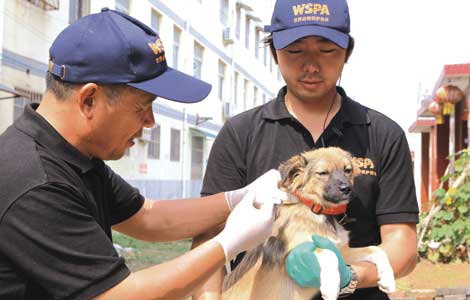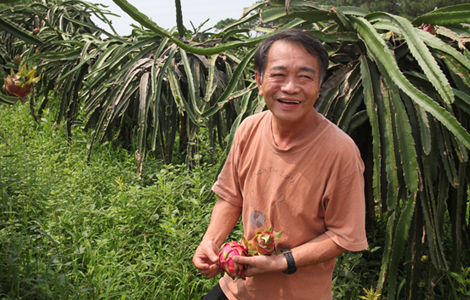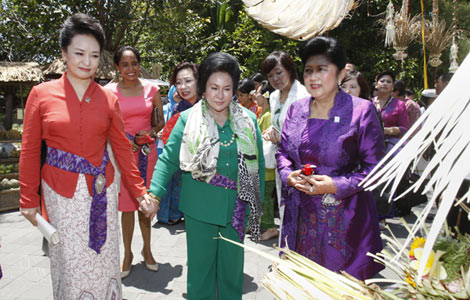Caregivers' high turnover is a problem for orphanages
Updated: 2013-10-09 08:50
By He Dan in Nanchang (China Daily)
|
||||||||
China's orphanages face challenges in retaining and attracting caregivers, as nannies are able to earn higher wages from private employers.
Tan Mingzhu, director of a child welfare home in Nanchang, capital of Jiangxi province, said that she felt anxious as almost every month, several child care workers are quitting because of low wages.
Tan's welfare house is home to about 270 children who have severe diseases or disabilities, including cerebral palsy and Down syndrome.
"Each caregiver in our house needs to take care of about four disabled children at a slender monthly salary of about 1,200 yuan ($195), but a yuesao, who takes care of the new-born baby and mother, in Nanchang earns about 5,000 yuan to 6,000 yuan a month," she said.
Tan's institution has about 80 caregivers and the turnover rate is worryingly high, especially among young nursing-school graduates.
"I often hear loyal caregivers complain that if I can't raise their wages, they'll have to leave because of rising prices and the high costs of raising a family," she said.
A child care worker from the institution who wished to only give her surname as Zhang said she has no idea how long she will continue to work at Tan's orphanage.
The 38-year-old, along with her husband and their 10-year-old child, live in a low-rent house provided by the government for low-income families.
"You have to be very committed and caring to take care of these children," said Zhang, who has been working at the orphanage for 12 years.
"It's a tiring job because it requires more energy and patience to nurse a sick or disabled child," said the veteran caregiver, whose daily routine includes feeding, bathing, changing and exercising four institutionalized children younger than 6.
Liu Aiping, director of the child welfare home in Yangzhou, Jiangsu province, said she also feels pressure over how to keep caregivers who can earn four or five times more pay as private nannies.
Liu said most caregivers at her institution are women in their 40s or 50s and live near the welfare house. Their income is less than 20,000 yuan per year.
"I can only comfort my caregivers by awarding them with honors and other nonmaterial encouragement," she said.
"There's definite urgency for the government to come up with a better solution, such as setting up a budget to improve caregivers' pay," Liu said.
Most Viewed
Editor's Picks

|

|

|

|

|

|
Today's Top News
Back to 1942, entered for the 86th Oscars
Obama says he'll negotiate once 'threats' end
Unprotected sex brings sharp rise in HIV/AIDS
Japan-US military drill raises tension
Xinjiang bid to curb terrorist attacks
No Xmas in July for vendors at Yiwu's market
Xi calls for more APEC connectivity
Wet weather fails to dampen FTZ interest
US Weekly

|

|













